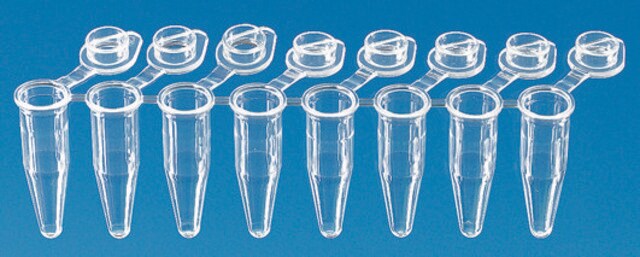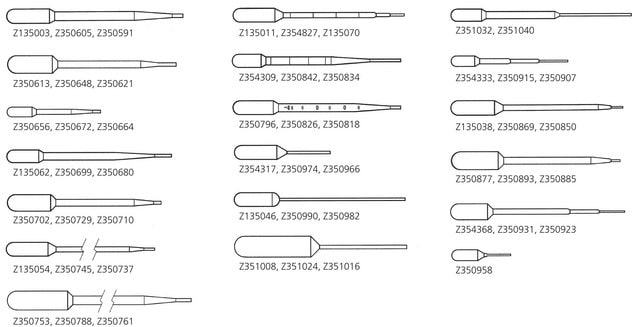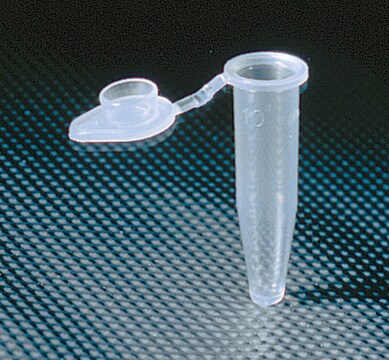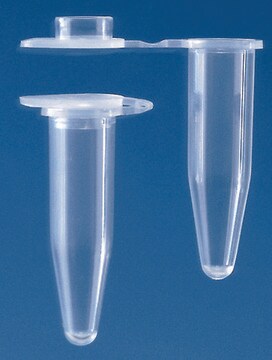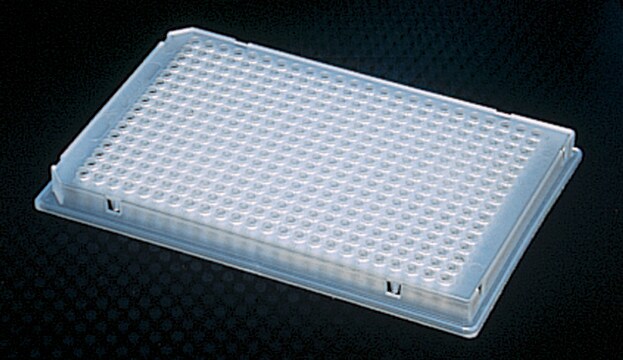Z374873
PCR microtubes with attached caps
capacity 0.2 mL
Sinónimos:
PCR Tubes
About This Item
Productos recomendados
material
colorless cap
colorless tube
conical bottom
flat cap
polypropylene
polypropylene cap
polypropylene tube
description
Autoclavable
sterility
non-sterile
feature
RNase and DNase free
autoclavable at 121 °C
graduations: no
Push fit
packaging
pack of 250 ea
case of 4 packs
technique(s)
PCR: suitable
capacity
0.2 mL
color
clear
suitability
suitable for (PCR applications)
¿Está buscando productos similares? Visita Guía de comparación de productos
General description
Elija entre una de las versiones más recientes:
Certificados de análisis (COA)
It looks like we've run into a problem, but you can still download Certificates of Analysis from our Documentos section.
Si necesita más asistencia, póngase en contacto con Atención al cliente
¿Ya tiene este producto?
Encuentre la documentación para los productos que ha comprado recientemente en la Biblioteca de documentos.
Los clientes también vieron
Protocolos
Reverse transcription (RT) is the process of converting RNA to cDNA using a reverse transcriptase enzyme and dNTPs.
The most common application for qPCR is the measurement of a gene transcript or copy number quantity relative to one or more reference genes using probe detection.
Hot Start dNTPs are modified with a thermolabile protecting group at the 3’ terminus. The presence of this modification blocks nucleotide incorporation by DNA polymerase until the nucleotide protecting group is removed during a heat activation step.
Primer Concentration Optimization Protocol is an approach to create a matrix of reactions. This is used to test a range of concentrations for each primer against different concentrations of the partner primer.
Nuestro equipo de científicos tiene experiencia en todas las áreas de investigación: Ciencias de la vida, Ciencia de los materiales, Síntesis química, Cromatografía, Analítica y muchas otras.
Póngase en contacto con el Servicio técnico